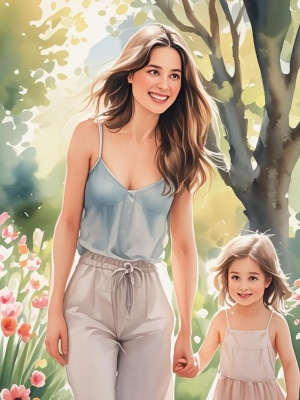The Art of Combining Graphite and Watercolor: A Comprehensive Guide
Introduction
Graphite and watercolor are two of the most versatile mediums in the art world. When combined, they create stunning works that showcase the precision of graphite with the vibrancy of watercolor. This article explores the techniques, challenges, and solutions for mastering this unique artistic combination. Whether you're a beginner or an experienced artist, understanding how to effectively use graphite and watercolor together can elevate your artwork to new heights.
The Unique Qualities of Graphite and Watercolor
Graphite: Precision and Detail
Graphite pencils offer unparalleled control for creating detailed sketches and precise lines. The range of hardness from 9H (hardest) to 9B (softest) allows artists to achieve various textures and shading effects. Many artists use graphite for initial sketches before applying watercolor, as seen in our gallery of mixed media artworks.
Watercolor: Transparency and Vibrancy
Watercolor paints are renowned for their luminous quality and transparent layers. Unlike opaque mediums, watercolors allow light to reflect off the white paper, creating a unique glow. When combined with graphite, the contrast between the precise lines and fluid washes can produce breathtaking results.
Challenges and Solutions in Combining Graphite and Watercolor
Problem: Graphite Smudging with Water
One common issue when combining graphite and watercolor is the tendency for graphite to smudge when wet. This can muddy your colors and ruin delicate details.
Solution: Proper Sealing Techniques
Consider these approaches to prevent smudging:
- Use a fixative spray before applying watercolor
- Work with harder graphite (2H or higher) for initial sketches
- Apply watercolor first in areas where you'll later add graphite details
Advanced Techniques for Graphite and Watercolor
Layering Methods
The order in which you apply graphite and watercolor significantly affects the final result. Two primary approaches exist:

- Graphite first, then watercolor (best for detailed works)
- Watercolor first, then graphite (ideal for loose, expressive pieces)
Creating Texture Contrast
Experiment with different textures to create visual interest. For example, use smooth watercolor washes against highly textured graphite shading. Our AI painting guide offers additional insights into texture creation.
Materials and Tools for Best Results
Choosing the right materials is crucial for successful graphite and watercolor artworks:
- Heavyweight watercolor paper (300gsm or higher)
- Quality graphite pencils (ranging from 2H to 6B)
- Professional-grade watercolor paints
- Kneaded eraser for subtle graphite adjustments
Conclusion
The combination of graphite and watercolor offers artists a unique range of expressive possibilities. By understanding the properties of each medium and mastering techniques to combine them effectively, you can create artworks that showcase both precision and fluidity. Whether you're working on portraits, landscapes, or abstract pieces, this mixed media approach can add depth and dimension to your work. For more artistic inspiration, explore our collection of landscape artworks that demonstrate these techniques.
As you continue to experiment with graphite and watercolor, remember that practice and patience are key. Each medium has its learning curve, but the results are well worth the effort. Happy creating!
